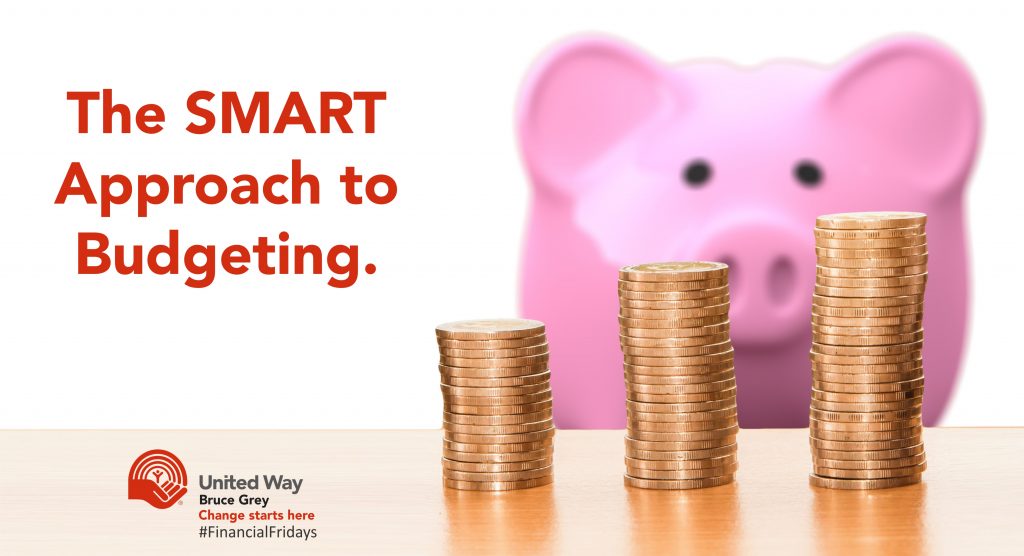#FinancialFridays: The SMART Approach to Budgeting.

2020 has finally ended and we made it… although many of us have been hard hit financially by COVID-19 and the far-reaching impacts of it! It is still not too late to look back and plan for moving forward. I like to set ‘SMART’ goals that I can work towards realistically.
What the heck are SMART goals?!?!?! Using the SMART method of setting goals can help make sure your goals are clear and reachable.
S – Specific
· What do I want to accomplish?
· Why is this goal important?
· Who is involved?
· Which resources or limits are involved?
M – Measurable
· How much?
· How many?
· How will I know when it is accomplished?
A – Achievable
· How can I accomplish this goal?
· How realistic is the goal, based on other constraints, such as financial factors?
R – Relevant
A relevant goal can answer yes to these questions:
· Does this seem worthwhile?
· Is this the right time?
· Does this match my other goals/needs?
· Does it matter in the current circumstances?
T – Time bound
· When?
Once you have set some goals, list the steps you will take to accomplish each goal.
Here are two examples of SMART goals related to finances.
Example #1: Goal – To make a budget by the end of this month.
A budget is a foundational tool that can help you see your current financial situation and then plan for the future. A budget should show your monthly income, your monthly expenses, your assets, and your debts.
Steps to take:
· I will research different types of budget tools including smart phone apps, spreadsheets, hardcopy budgets, etc. Here is one tool from the Government of Canada.
· I will choose the budget tool I am going to use by the end of the first week of January.
· I will gather the information and fill in the budget for January.
· I will review the budget and make sure I am including everything and if there are any parts I want to work towards changing.

Example #2: Goal – To save $800 in an emergency fund by May 2023.
An emergency fund gives people peace of mind and the ability to deal with unexpected events. The importance of this has become even more evident during the pandemic. Pick an amount that lets you cover your expenses for at least one month. Remember that when you use money from the emergency fund, it should then be replenished over time to the amount you have determined.
Steps to take:
· I will write a list of the things that I consider emergencies and would be the only reasons I take money out of the emergency fund.
· Say you decide to start saving in May 2021: In order to save $800 by May 2023, I will need to save $33.33 per month. ($800/24 months=$33.33/m)
· I will speak with my bank during the first week of May to set up a separate savings account or Tax-Free-Savings Account (TFSA) where I will deposit the money for my emergency fund.
· I will deposit $33.33 into the new account for May. (This may be a good thing to do with your tax return if you received one.
· I will set up an Automatic Transfer from my main account into the new account to come out one day after my income usually goes into my account.

If you need help improving your financial situation or need helpful budgeting advice, our Financial Literacy Program can help. Contact Caroline, our Program Coordinator at 519-378-4773 or email her at advice@unitedwaybg.com

